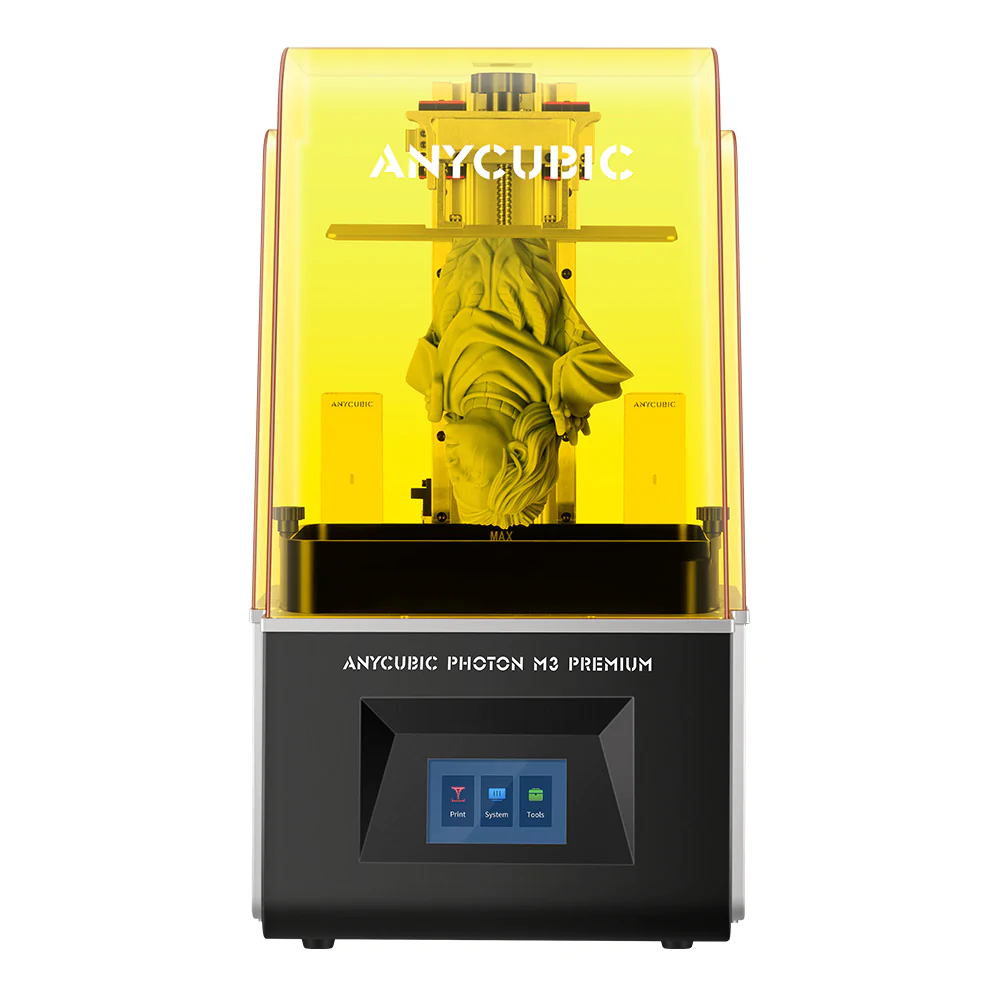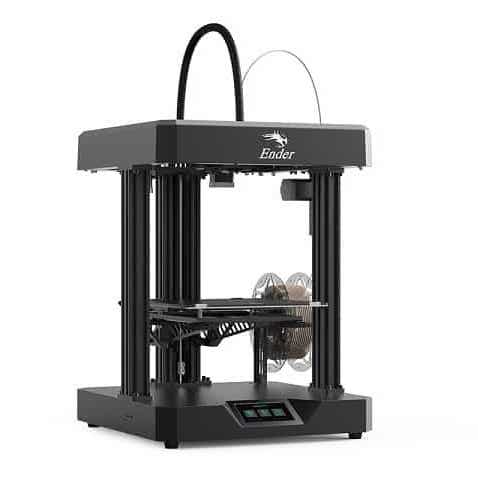Compare Photon M3 Premium vs Ender 7
Comparison between the best 3D printers
Choose the best 3D printer at the best price. The cheapest 3D printers are here.
Buy a 3D printer here with 3D Fila.
 |
 |
|
| Model | Photon M3 Premium[BUY Photon M3 Premium] |
Ender 7[BUY Ender 7] |
| Printing Material | Resin | Filament |
| Buy Resin for Anycubic Photon M3 Premium | Buy Filament forCreality 3D Ender 7 | |
| Estimated price | $600,00 | $429,00 |
| Manufacturer | Anycubic | Creality 3D |
| Release Year | 2022 | 2021 |
| Print Volume [mm] | 123x219x250 | 250x250x300 |
| Printer Size [mm] | 330x350x630 | 430x460x570 |
| Weight [kg] | 19 | 17,2 |
| Power Loss Recovery | NO | YES |
| Maximum Resolution [mm] | 0,01 | 0,1 |
| Processor | Creality CR-FDM V.2.4.S1_V101 32bits | |
| Display | Display touchscreen 4,3'' | Display touchscreen 4,3'' |
| Power Supply | 150 W | 110/220V / 350W |
| Connectivity | USB / Wi-Fi | SD / USB |
| Operating systems | Windows, Mac, Linux | |
| Date of registration in the system | 2023-01-19 | 2022-11-04 |
| Release date | 2022 | 2021 |
| Extra features | The Anycubic Photon M3 Premium Printer features MSLA technology with a 10-inch monochrome LCD screen and 8K resolution, ensuring prints with fine details thanks to the 28.5 micron resolution. It has a generous build volume (219 x 123 x 250 mm), an intelligent cooling system for greater durability, and a laser-etched build plate for better adhesion. It offers dual air filters, reducing odors, and the promise of compatibility with the Anycubic Cloud app. Its design includes an Art Deco-style UV curved glass and an efficient leveling system for the build platform. | Crealitys Ender 7 printer offers remarkable print speeds, utilizing CoreXY kinematics for precise and fast movement. With a 250x250x300mm build area, dual direct extruder, and custom hotend, the Ender 7 is capable of printing at high speeds, although quality may suffer on smaller prints. Assembly is relatively straightforward, but the machine is noisy and can get hot. Its true speed potential is most noticeable on larger prints, where it outperforms its competitors. |
| Support for multiple colors and materials (AMS and CFS) | NO | NO |
Notes * |
||
| Cost-benefit | 7 / 10 | 7 / 10 |
| Hardware | 3 / 10 | 2 / 10 |
| Tela | . | . |
| Print volume | 3 / 10 | 4 / 10 |
| Performance | 9 / 10 | 2 / 10 |
| [BUY Photon M3 Premium] | [BUY Ender 7] |
Conclusion |
| In comparing the Anycubic Photon M3 Premium and the Creality Ender 7, both 3D printers have distinct strengths and weaknesses that cater to different user needs. The Photon M3 Premium, with its advanced MSLA technology and impressive 8K resolution, is ideal for users who prioritize detail and precision in their prints, particularly for smaller, intricate designs. Its compact print volume and intelligent cooling system enhance its performance for resin printing, although it lacks power loss recovery and has a slightly higher weight. Additionally, the integrated ecosystem with the Anycubic Cloud app adds a layer of convenience for users who enjoy tracking and managing their prints remotely. On the other hand, the Creality Ender 7 excels in speed, leveraging CoreXY kinematics for faster printing, making it suitable for users looking to produce larger projects quickly. It offers a more substantial build volume, allowing for bigger prints, though it may lose some print quality on smaller items. While it has a lower maximum resolution compared to the Photon M3 Premium, it compensates with reliable performance for larger applications. In terms of cost-effectiveness, both printers showcase a similar cost-benefit ratio, but differing overall hardware and performance metrics highlight their intended uses. Those focused on high-resolution detail might lean towards the Photon M3 Premium, while users valuing speed and volume might find the Ender 7 more appealing. Ultimately, the best choice between these two printers depends on your specific use case: prioritize detail and resolution with the Photon M3 Premium, or choose speed and larger print capabilities with the Ender 7. Each printer stands out in its own right, offering valuable features tailored to different needs in the 3D printing ecosystem. |

